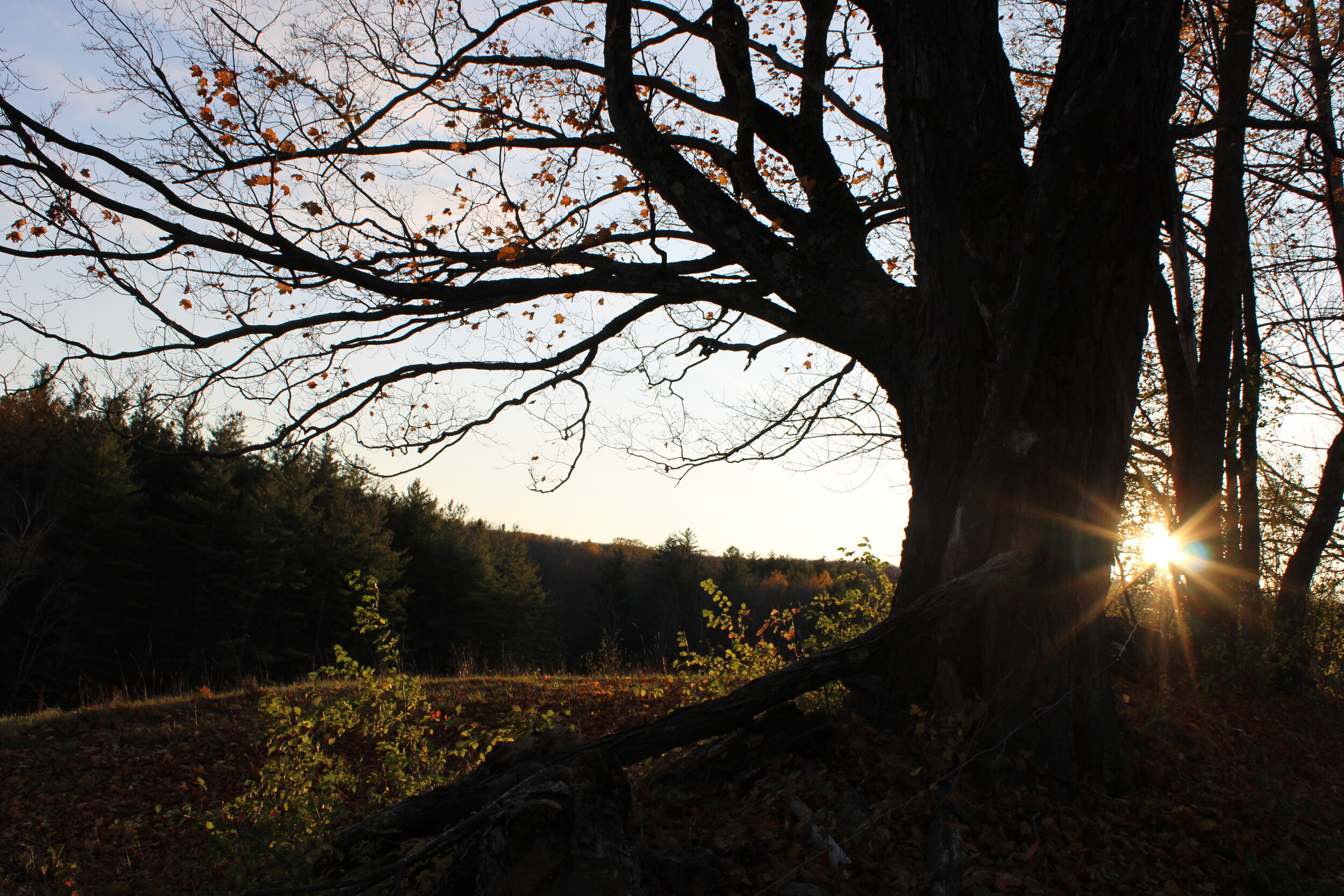Making room for change
This year's presidential election is a crucial point in our nation's history, but it's not the final solution to the nation's problems, not by a long shot.
Sunlight breaks through the trees along Fletcher Schoolhouse Road in South Woodstock, Vermont, late Sunday afternoon. (Gareth Henderson Photo)
This year's presidential election is a crucial point in our nation's history, but it's not the final solution to the nation's problems, not by a long shot. It's up to the American people to change the nation for the better, and, in this polarized country, that work will need doing no matter who is elected.
The good news is, we are equal to the task. We are still a strong people, with many citizens who believe in one of our most fundamental rights: the vote. Many Americans have already cast their ballots either by in-person early voting or absentee balloting. By Sunday, 57 million people had already voted in the U.S. — that's 42 percent of 2016's total turnout, according to ABC News.
Overall, it's clear that the COVID-19 pandemic and the political energy around this election are major factors in these early voting numbers. But being committed to the country's future is also a draw, and hopefully that energy can help drive progress now and after the results of the election are in. With the country's need for healing being front-and-center, it's so important to build voter engagement into people engagement. That is, the current drive to participate in the vote, can be used to connect more people with one another and build a more unified country as we recover from the health crisis.
That kind of unity starts with small efforts, including talking to those with whom we disagree, in order to build bridges, so to speak. There is currently a great deal of assumption about others, driven by labels. Those labels often shut down any desire to engage in constructive dialogue, because, by nature, labels don't have any room for nuance or adjustment — certainly no room for progress. They are what they are.
However, we have the choice to either accept labels, or learn something constructive about someone else. We each have the ability to do the latter. If we take that path, we work against polarization, step by step, and we work for the good of all. We build relationships that cumulatively pave the way for progress and greater unity, even after the election. This will take time, but the work of forming these important bonds can begin now, with each of us being willing to forsake labels and work for the greater good.
— Gareth Henderson

